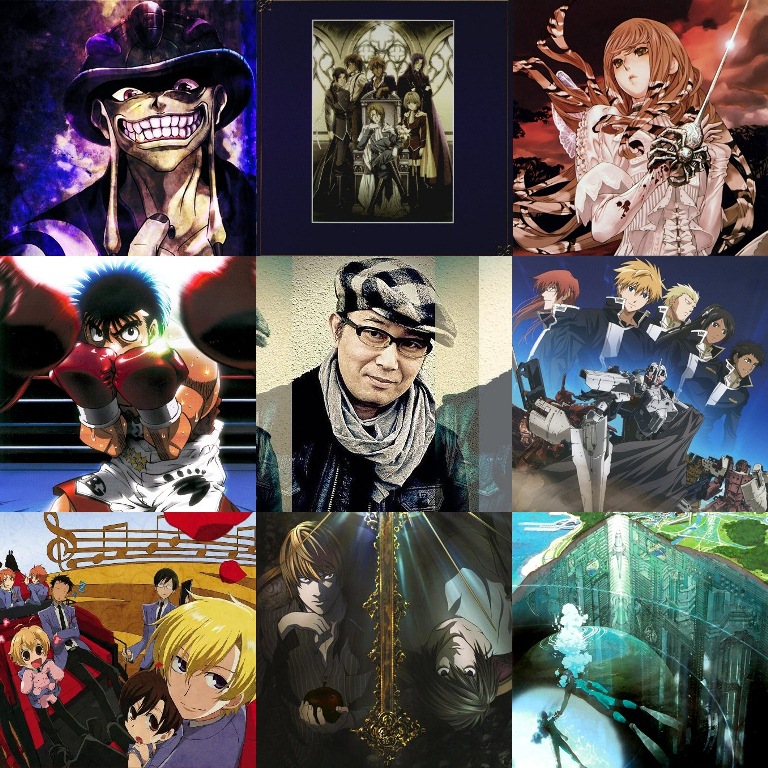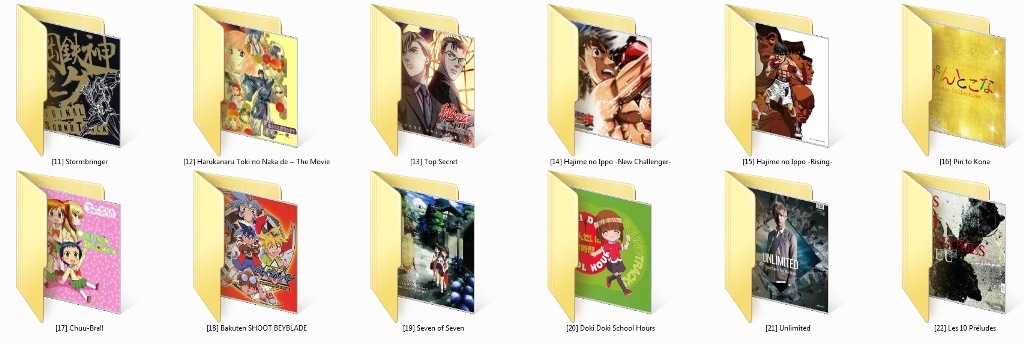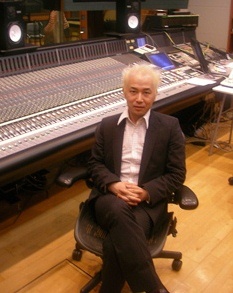Vinphonic
10-03-2017, 03:26 PM
The Legacy of Japanese Composers
Yoshihisa Hirano

Fugues, Chorales, Twelve tones and an onslaught of counterpoint in general... welcome to the astonishing music world of Yoshihisa Hirano, a composer that exemplifies that art and commerce are not contradictory categories. There’s no excuse for not pursuing the boundaries of recorded music composition and applying centuries-old musical experimentation with modern tendencies within media music. His approach to media scoring was once a possible approach in western media scoring as well, but is now almost completely gone thanks to safe-testing, lowest-common-denominator-seeking, for-profit humiliation of a once noble and artful profession that reached the deepest places of hearts and minds of thousands of people.
Thank the gods there's still one “western” industrial nation left that still conducts media scoring like yesteryear, while embracing modern tendencies, but never abandoning century-old cultural foundations of music.
For every media product of Japan, there’s at least the chance it receives a musical score that channels the very best musical traditions of long-gone musical eras and the complexity of musical academics. No other media composer on earth uses this chance like Yoshihisa Hirano. Every minute of his music is filled to the brim with interesting things going on that the average film music lovers and the 12 semester music academic can enjoy. Superficial is never the case with his music.
No composer is safe from exceptions of course, but he usually gives his media projects a distinct and unique musical identity, not unlike Taku Iwasaki, albeit a bit more unified in sound. He has MANY devices he loves to repeat in numerous works and yes, I’ll admit there’s quite an overabundance of Gregorian chants and baroque techniques but it NEVER is boring.
Most of his scores are recorded in a small studio and written for a chamber orchestra-sized ensemble, so keep that in mind. I would even go so far as to say that as an aspiring composer, you should study some of his scores as a masterclass of chamber composition and arrangement in media music. His use of percussion is also noteworthy and even worthy of study if you ask me. He trumps just about every other media composer alive in that field. Unfortunately, his only chance at a full symphony orchestra was as an arranger for Final Fantasy XIII. It’s a shame because he above all others should get the chance at a solo Warsaw score more than any other. His absolute mastery of the orchestra would be a blast to listen to with a full-sized orchestral ensemble.
Now diving into his body of work, of course everything is in FLAC if possible.
But before we begin, a toast (and rep) to tangotreats, nextday, Herr Salat and Akashi-san for providing certain scores in FLAC and saving me yet again the trouble of ripping cds:
Part I – Cacophonous Depths

Broken Blade (“Break Blade”) and Real Dive (“RD Sennou Chousashitsu”) are masterclasses in vocal writing and Hirano’s favorite devices appear at their strongest here as well. In essence Broken Blade is more fantasy than scifi, exemplified later in my collection, with a beautiful impressionistic love theme as a counter to the frantic heroic fanfares and apocalyptic bravado. Real Dive has sublime use of percussion and piano.
DEATH NOTE is perhaps his most popular work and the one that put him on many people’s radar. While the recording circumstances are tragic, the music itself is an instant classic, used in the show to tremendous effect. It’s a gothic horror masterpiece with masterful use of choir and brass.
Meine Liebe and Ouran Highschool Host Club are masterclasses of reinterpreting classical works (something Hirano loves to do) with one’s own voice. The results don’t need to hide behind the originals at all, they can sit right alongside them. Absolutely beautiful and putting a smile on my face every time. This excellent music should not be forgotten and is thankfully studied and applied by dozens of old and upcoming Japanese composers. But still beyond tragic that the place where it originated from seems to have no place for it anymore. This level of class can only be found in Japanese Late-Night-Anime, apparently.
Silk Boy Yuto is a fantastic score, using almost the whole Chinese repertoire with a bigger orchestral ensemble then what we are used to by Hirano. Much more brass heavy as well. Beautiful heroic themes and fanfares interplay with sublime Asian romanticism and baroque intersections.
Part II – Dissonant Adventure

Super Robot Wars OG –Divine Wars- is a furious tour de force of operatic orchestral bombast with some of my favorite action pieces from Hirano with much Christian kitsch. A precursor to Broken Blade and equally delicious.
HunterXHunter and Tanken Driland are a blessing. Both masterclasses of descending from carefree romantic adventure into atonal madness and terror. It’s almost unbelievable what he did for “children’s entertainment” . Many of my favorite Hirano compositions can be found in HxH and Driland, including the masterpiece of glooming terror “Theme of Kage” or the gorgeous happy-go-lucky Hero’s stroll “Adventure Princess”.
The Book of Bantorra is a cross of DEATH NOTE and Tanken Driland, continuing with gothic atmosphere and apocalyptic moments of dread, intersected by beautiful piano concerto moments. As usual, excellent usage of choir. Not his absolute best but still great music.
Part III – Introspective Atonality

Stormbringer is Hirano’s take on a superhero score… meaning much dissonance amidst heroic themes and bravado. Good stuff.
Harukanaru Toki no Naka de is a traditional film score with much Japanese flair. His usage of percussion is excellent as always and it’s full of lyricism and beauty. A nice change of pace.
Top Secret and his Hajime no Ippo scores are a departure from his usual trademarks in a sense. Sure, rock and Jazz were parts of his other works as well, but here they really come into their own. Sch�nbergian dissonance rock and jazz describes it best.
His beautiful string (quartet) and piano pieces are still here but the hectic, fast, rhythmic electronic chaos is dominant. Fascinating scores to say the least.
Pin to Kona shows Hirano’s adaptability. He is a master of a thousand styles, now playing the “TV drama” sound with such sincere intent you would not believe it’s him at first glance, but arrangement and typical devices give him away. But remember, many composer are struggling with being better than just achieving that drama sound, and Hirano plays this card with such effortlessness that it almost ridicules his peers.
The remaining scores are good carefree fun that put a smile on your face. Jazzy and quirky with much musical humor. Right now Hirano kind of dwells in this mode but I’m sure he will return full-force sometime soon. Bayblade was his major debut score, and it still holds up today but is nonetheless dwarfed by his following efforts.
Last year he was busy with two solo piano albums, and they are both excellent brain food. A treat for your synapses, one being a complex labyrinth and the other a more straightforward “flowery” expression.
Part IV – Discordant Appendix

Finally we have his arrangements for Final Fantasy XIII and a custom score I did for myself first and foremost many years ago: Dark Souls 2.
Hirano’s music really is magical (not in a pixie-dust kind of way but more in a Nimh-like way).
Composer Profile: Yoshihisa Hirano

Education: The Juilliard School of Music and Eastman School of Music (USA)
Occupation: Composer, Arranger, Orchestrator, Solo Artist
Similar Western Composers: Johann Sebastian Bach, Wolfgang Amadeus Mozart, Arnold Sch�nberg
Style: Baroque, Classic, Modern
LINK IN DESCRIPTION (https://mega.nz/#!Y2ogXJiT!dNI8VoSRRRcHeYAo3iS5rhQ-RrXGbEYYPb45011pjqk)
Yoshihisa Hirano

Fugues, Chorales, Twelve tones and an onslaught of counterpoint in general... welcome to the astonishing music world of Yoshihisa Hirano, a composer that exemplifies that art and commerce are not contradictory categories. There’s no excuse for not pursuing the boundaries of recorded music composition and applying centuries-old musical experimentation with modern tendencies within media music. His approach to media scoring was once a possible approach in western media scoring as well, but is now almost completely gone thanks to safe-testing, lowest-common-denominator-seeking, for-profit humiliation of a once noble and artful profession that reached the deepest places of hearts and minds of thousands of people.
Thank the gods there's still one “western” industrial nation left that still conducts media scoring like yesteryear, while embracing modern tendencies, but never abandoning century-old cultural foundations of music.
For every media product of Japan, there’s at least the chance it receives a musical score that channels the very best musical traditions of long-gone musical eras and the complexity of musical academics. No other media composer on earth uses this chance like Yoshihisa Hirano. Every minute of his music is filled to the brim with interesting things going on that the average film music lovers and the 12 semester music academic can enjoy. Superficial is never the case with his music.
No composer is safe from exceptions of course, but he usually gives his media projects a distinct and unique musical identity, not unlike Taku Iwasaki, albeit a bit more unified in sound. He has MANY devices he loves to repeat in numerous works and yes, I’ll admit there’s quite an overabundance of Gregorian chants and baroque techniques but it NEVER is boring.
Most of his scores are recorded in a small studio and written for a chamber orchestra-sized ensemble, so keep that in mind. I would even go so far as to say that as an aspiring composer, you should study some of his scores as a masterclass of chamber composition and arrangement in media music. His use of percussion is also noteworthy and even worthy of study if you ask me. He trumps just about every other media composer alive in that field. Unfortunately, his only chance at a full symphony orchestra was as an arranger for Final Fantasy XIII. It’s a shame because he above all others should get the chance at a solo Warsaw score more than any other. His absolute mastery of the orchestra would be a blast to listen to with a full-sized orchestral ensemble.
Now diving into his body of work, of course everything is in FLAC if possible.
But before we begin, a toast (and rep) to tangotreats, nextday, Herr Salat and Akashi-san for providing certain scores in FLAC and saving me yet again the trouble of ripping cds:
Part I – Cacophonous Depths

Broken Blade (“Break Blade”) and Real Dive (“RD Sennou Chousashitsu”) are masterclasses in vocal writing and Hirano’s favorite devices appear at their strongest here as well. In essence Broken Blade is more fantasy than scifi, exemplified later in my collection, with a beautiful impressionistic love theme as a counter to the frantic heroic fanfares and apocalyptic bravado. Real Dive has sublime use of percussion and piano.
DEATH NOTE is perhaps his most popular work and the one that put him on many people’s radar. While the recording circumstances are tragic, the music itself is an instant classic, used in the show to tremendous effect. It’s a gothic horror masterpiece with masterful use of choir and brass.
Meine Liebe and Ouran Highschool Host Club are masterclasses of reinterpreting classical works (something Hirano loves to do) with one’s own voice. The results don’t need to hide behind the originals at all, they can sit right alongside them. Absolutely beautiful and putting a smile on my face every time. This excellent music should not be forgotten and is thankfully studied and applied by dozens of old and upcoming Japanese composers. But still beyond tragic that the place where it originated from seems to have no place for it anymore. This level of class can only be found in Japanese Late-Night-Anime, apparently.
Silk Boy Yuto is a fantastic score, using almost the whole Chinese repertoire with a bigger orchestral ensemble then what we are used to by Hirano. Much more brass heavy as well. Beautiful heroic themes and fanfares interplay with sublime Asian romanticism and baroque intersections.
Part II – Dissonant Adventure

Super Robot Wars OG –Divine Wars- is a furious tour de force of operatic orchestral bombast with some of my favorite action pieces from Hirano with much Christian kitsch. A precursor to Broken Blade and equally delicious.
HunterXHunter and Tanken Driland are a blessing. Both masterclasses of descending from carefree romantic adventure into atonal madness and terror. It’s almost unbelievable what he did for “children’s entertainment” . Many of my favorite Hirano compositions can be found in HxH and Driland, including the masterpiece of glooming terror “Theme of Kage” or the gorgeous happy-go-lucky Hero’s stroll “Adventure Princess”.
The Book of Bantorra is a cross of DEATH NOTE and Tanken Driland, continuing with gothic atmosphere and apocalyptic moments of dread, intersected by beautiful piano concerto moments. As usual, excellent usage of choir. Not his absolute best but still great music.
Part III – Introspective Atonality

Stormbringer is Hirano’s take on a superhero score… meaning much dissonance amidst heroic themes and bravado. Good stuff.
Harukanaru Toki no Naka de is a traditional film score with much Japanese flair. His usage of percussion is excellent as always and it’s full of lyricism and beauty. A nice change of pace.
Top Secret and his Hajime no Ippo scores are a departure from his usual trademarks in a sense. Sure, rock and Jazz were parts of his other works as well, but here they really come into their own. Sch�nbergian dissonance rock and jazz describes it best.
His beautiful string (quartet) and piano pieces are still here but the hectic, fast, rhythmic electronic chaos is dominant. Fascinating scores to say the least.
Pin to Kona shows Hirano’s adaptability. He is a master of a thousand styles, now playing the “TV drama” sound with such sincere intent you would not believe it’s him at first glance, but arrangement and typical devices give him away. But remember, many composer are struggling with being better than just achieving that drama sound, and Hirano plays this card with such effortlessness that it almost ridicules his peers.
The remaining scores are good carefree fun that put a smile on your face. Jazzy and quirky with much musical humor. Right now Hirano kind of dwells in this mode but I’m sure he will return full-force sometime soon. Bayblade was his major debut score, and it still holds up today but is nonetheless dwarfed by his following efforts.
Last year he was busy with two solo piano albums, and they are both excellent brain food. A treat for your synapses, one being a complex labyrinth and the other a more straightforward “flowery” expression.
Part IV – Discordant Appendix

Finally we have his arrangements for Final Fantasy XIII and a custom score I did for myself first and foremost many years ago: Dark Souls 2.
Hirano’s music really is magical (not in a pixie-dust kind of way but more in a Nimh-like way).
Composer Profile: Yoshihisa Hirano

Education: The Juilliard School of Music and Eastman School of Music (USA)
Occupation: Composer, Arranger, Orchestrator, Solo Artist
Similar Western Composers: Johann Sebastian Bach, Wolfgang Amadeus Mozart, Arnold Sch�nberg
Style: Baroque, Classic, Modern
LINK IN DESCRIPTION (https://mega.nz/#!Y2ogXJiT!dNI8VoSRRRcHeYAo3iS5rhQ-RrXGbEYYPb45011pjqk)